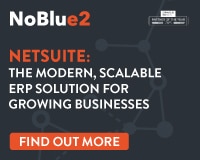Enterprise resource planning (ERP) software systems integrate data and business functions across various markets like finance, manufacturing, marketing, sales and others, which makes it an appealing prospect for potential cyber-attacks.
Whether on the business’s own hardware and servers, or delivered on a Cloud system, access to a rich field of data is a worry, and the implementation journey can be rife with cyber risk.
Whether upgrading or moving to the cloud, what processes can you follow for a secure, successful ERP implementation?
Important updates
There are many businesses that don’t update their software immediately when asked to. This can lead to an unsupported version of the software a business uses, which can make the system problematic when rectifying technical issues, such as crashes.
Also, if a business doesn’t do the necessary updates, it will mean your company is running outdated ERP software, which can leave you at risk. Potential cyber criminals could look to exploit these vulnerabilities in software.
Choosing new ERP software? Your ERP system should include features that allow you to know when updates are available, so you don’t ever miss out on keeping your systems safe.
Authorisation issues
When getting any new system, managers want to get new started as quickly as possible, which can unfortunately lead to missing the finer details; and one is often forgetting to hand out ERP authorisations. This also includes not deactivating employees when they leave the company. ERP systems are therefore at risk from cyber criminals, due to outdated authentication.
Some ERP systems are built to support this risk, with authentication capabilities and a workflow that is straightforward to use when onboarding new employees.
Lack of training
It has been reported that nearly 80% of organisations felt that their training methods were put in place to eliminate phishing risks – and were then shocked to find that over 30% of their employees failed a basic test. This was due to weak passwords, lack of information, and not understanding security protocols. This can mean that even your most diligent employees can unknowingly put your business at risk.
Working with a professional sourced company to perform a risk audit across your business can pinpoint where your weakest security links may be. Managers could build regular training plans that address needs for each department, with testing dates, certificate renewals, and continued training courses.
Complying with security standards
As ERP systems are introduced across departments, the range of data grows and can be very sensitive, including secure product information, and financial and medical records. The more sensitive the data, the more likely it is that it has and needs its own unique security and storage protocols. Many companies may fail to comply with – or even be aware of these. This can lead to potential breaches of that data, and also legal penalties.
Thankfully, most modern ERPs can take control and hold a range of compliance protocols for a wide variety of data. This means that companies can determine the correct security standards, and then set up automated systems and user dashboards to ensure that they adhere to the correct protocols.
Data exporting issues
It is sometimes overlooked, but small practices such as putting things into spreadsheets or saving them in other formats, all that include data export risks – remain a problem for businesses.
How to control this risk? Companies can control this with simple actions used within the database. But the best way to protect against data export? Limit the number of people who have access to sensitive and vulnerable data. ERPs enable managers to choose who gets to see what, and which elements of a data set they may access to and view. Cloud ERPs have integrated security features that can be automated to send notifications and prevent users from exporting data.
Looking for a new ERP software solution? At itSHOWCASE, you have access to the top ERP experts. Learn all aspects of ERP systems from the most ERP providers at any event. Get your free tickets here






